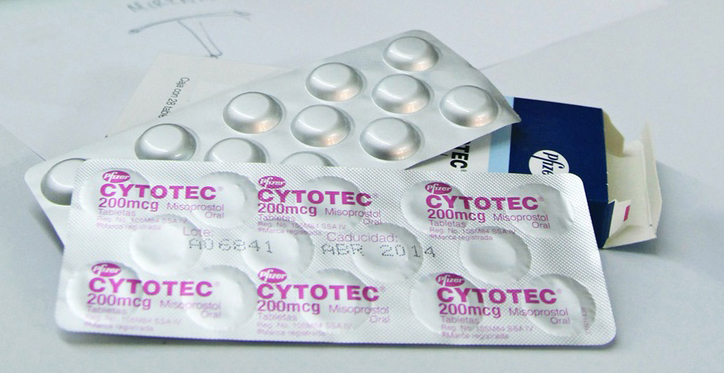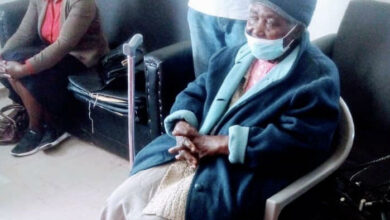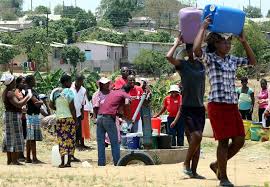Inside Bulawayo’s backyard abortion syndicates

BY LUNGILE NGWENYA AND ABIGIRL KHUPE
Tatenda Phiri (21)* recalls with vivid detail the excruciating pain she went through when she attempted an abortion several months ago.
Although she had been warned about stomach cramps and bleeding she would have to endure, nothing prepared her for the nightmare she would go through.
“I bought tablets from a local doctor, who gave me instructions on how to administer them,” she recollected.
Phiri from Bulawayo’s Makokoba suburb took the tablets, but things did not go according to plan, as she only started bleeding the following morning, with a flow not as heavy as she expected.
“I thought my four-month pregnancy had been terminated but I gave birth to a still born child two months later,” she said.
And without a hint of irony, Phiri continued. “The tablets had killed my baby and it was hard to accept.”
Phiri had planned to terminate the pregnancy the moment she learnt she was expecting, but the only problem is that abortion is illegal in Zimbabwe.
Desperate and running out of time, a backyard abortion was her last resort.
Backyard abortions are a booming business in Zimbabwe’s second city, with the operations bringing together a motley crew of operators and middlemen such as hairdressers, who are cashing in on the rising demand, an investigation by Cite has revealed.
One of the drugs peddled by the syndicates is Misoprostol, which is readily available from the illegal dealers that usually use a network of hairdressers to recruit clients.
Misoprostol is used to induce preterm labour and an abortion, among other functions and is only sold to patients with a doctor’s prescription for US$2 or $6 in local currency.
The pharmacists reportedly sell the drug to middlemen at $80 local currency.
However, women without a doctor’s prescription can get the drug for $200 local currency on the streets of Bulawayo or in hair salons.
Investigations revealed that the syndicates obtain prescriptions for Misoprostol from doctors mainly at government hospitals, including from outside the city, and get their supplies from selected pharmacies.
In an effort to trace the origin of the drugs used in the backyard abortions, CITE contacted a woman, who peddles the abortion tablets and operates from a hair salon in the central business district (CBD).
“We get the tablets from pharmacists, who sell them to us for $80 and we sell them for $200,” the woman, who requested to remain anonymous fearing a backlash, confided.
“The majority of our customers are women aged between 18 and 22.
“We don’t administer the tablets ourselves, but we refer you to professionals,” she said, before referring this news crew to a doctor at a major public hospital in the city.
She said the doctor (name withheld) was a key player in the thriving backyard abortions market in the city.
In an effort to get to the bottom of the story, one of the journalists pretended she wanted to do an abortion, a story the doctor believed.
The doctor asked a few questions related to the length of the supposed pregnancy and age of the journalist who wanted to do the abortion.
He then explained that he would administer the Misoprostol tablets and that the process to terminate the pregnancy took at least six hours.
The doctor said abortion was a painful process and there was a need to have painkillers at hand, before enquiring about the method of payment for his services.
Insiders revealed that some doctors were renting apartments in the CBD where the abortions take place, an indication that demand for their services was high.
In case the procedure does not go according to plan, the women are smuggled into health centres for treatment, it was revealed.
But there is an even darker side to the abortion business.
Some hairdressers who spoke to CITE said there were some women who could not afford paying a doctor or buying the drugs and they resorted to taking an overdose of laxatives.
Others are said to use a mixture of Coca Cola and soda, while some cross the border to South Africa, where abortion services are legal and more affordable.
Caroline Ngoma*, a student at a tertiary college in Bulawayo, narrated how she helped her roommate get treatment for excessive bleeding after she terminated a four-month old pregnancy.
Ngoma said the 19 year-old girl got into the bathroom to take a shower but took too long, before going back to bed.
“After a while, she called me and she was writhing in pain,” she said.
“I was shocked to see her in a pool of blood and I reported the issue to the authorities, who called an ambulance.
“Initially she claimed she had a miscarriage but the doctors found out that she had an abortion.”
She claimed she was given a concoction by a woman who sells herbs.
“The girl was told to put the concoction in her porridge for a week to terminate the pregnancy,” Ndiweni said. “She stayed in the hospital for three days.”
But not everyone is as lucky as that girl.
According to recent research, at least 70 000 women in Zimbabwe risk death by carrying out illegal abortions every year and the majority are from cities such as Bulawayo and Harare.
According to a study by the United Nations’ Children’s Fund, Zimbabwean women are 200 times more likely to die of abortion complications compared to their South African counterparts, where the practice is legal.
A 2016 study by Plus One established that four in 10 Zimbabwean women that terminated pregnancies experienced serious complications and only half of them received treatment.
A Bulawayo gynaecologist said most women were resorting to backyard abortions because of poverty.
“There are more girls who are resorting to illegal abortions because of poverty,” he said.
“Most of them also lack proper information about contraceptives, hence, the unwanted pregnancies.”
The doctor said the women risked psychological trauma, womb infections, life-threatening bleeding and infertility.
Campaigners say more women are likely to die attempting abortion in future and it is high time the government revisited legislation on termination of pregnancies, which has been described as archaic.
“We have worked through our health law and policy project with the Right Here Right Now consortium on the review of the Termination of Pregnancy Act and we have had considerable progress working with Parliament,” Tinashe Mundawarara, a manager in charge of special projects at the Zimbabwe Lawyers for Human Rights, said.
“A number of champion MPs have enhanced the policy advocacy effort and parliamentarians are now seized with the matter for this current Parliament.”
Katse Sistahood programmes officer, Linda Chandengenda said they were holding consultation meetings throughout the country to get people’s input ahead of the review of the Termination of Pregnancy Act.
“The Ministry of Health is quite progressive (in this regard) and we have been having community dialogues in different districts in Zimbabwe, getting views from people on what they want to see in the amended Termination of Pregnancy Act,” she said.
But, with Zimbabwe generally being a conservative society, there are many loud voices against abortion.
Prominent Bulawayo church leader Reverend Ray Motsi likened abortion to murder.
“The Bible condemns abortion, as it is a termination of human life, the commandments talk about not to kill,” he said.
“As Christians, we live by what the Bible says and not the law of the country and abortion is a sin against God.”
In terms of the Termination of Pregnancy Act, abortion is only allowed to save the life of a pregnant woman or in cases of rape, incest or foetal impairment.
Zimbabwe has one of the lowest abortion rates in Sub-Saharan Africa at 18 abortions per 1 000 women of reproductive age, which is about half the rate in East Africa.
*Not their real names







This is a contentious issue in zimbabwe. Despite it being illegal, unsafe abortion continues unabated, leading to harm to the young women. Is it not time for the government to decriminalise abortion in line with SRHR?